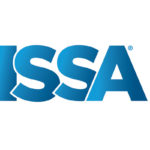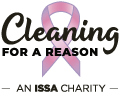News
ISSA Advocacy Weekly Recap – July 12, 2019
July 12, 2019
Welcome to our first edition of the ISSA Advocacy Weekly Recap! This will be ISSA’s regular roundup of the latest public policy related issues impacting the cleaning industry.
Minimum Wage Increases Take Effect
On July 1, minimum wage increases took effect in 22 states and localities. The resulting minimum wages range from New Jersey’s US$10 per hour to San Francisco and Berkley, Calif.’s $15.59 per hour. To help minimize the impact of wage increases, CMM recommends that employers use techniques such as discussing upcoming changes as early as possible and reexamining service schedules.
China Tariffs Put on Hold
ISSA submitted comments to the U.S. Trade Representative on July 1 asking for exemption from the proposed fourth round of tariffs on imports from China that are part of the cleaning product production process. These ranged from prepared knots and tufts for broom or brush making to parts used in floor polishers and carpet sweepers. As discussed in our Update on U.S. Tariffs With China, U.S. President Donald Trump placed those proposed tariffs on hold, a win for manufacturers who would have faced higher input costs. However, the cleaning industry is still feeling the effects of the current tariffs.
EPA Looking at 40 Chemicals of Concern
Hoping to avoid an imposition of new reviews and regulations at the federal level, manufacturers are detailing their usage of 40 different chemicals of concern to the U.S. Environmental Protection Agency (EPA). According to Bloomberg, it is in the “financial interest” of manufacturers to provide information, since the EPA’s decisions are “not impartial” and will impact business.
Labor Issues Impacting the Cleaning Industry
Against the backdrop of the tight current labor market, ISSA Today featured an article on The Public Policy Impact on Labor. It outlines the current government actions on key labor issues including immigration, minimum wage laws, and new proposed overtime rules. It also mentions areas of progress such as criminal justice reform and adoption of technology.
Workplace Harassment Prevention
On July 5, the Canadian government announced it would commit CA$2.8 million to a project seeking to reduce workplace harassment by “providing training on legal rights and… reform[ing] company policies that enable workplace harassment.” Moreover, a “centralized” online platform will be created to house everything one needs need to know about workplace sexual harassment.
Employers Give Ex-Offenders Second Chances
A combination of labor shortages and governments reforming their criminal justice systems have resulted in the increased hiring of ex-offenders by employers. Attorney Ross I. Molho told Industry Week that drug crimes are the most common conviction revealed by background checks. Additionally, Molho emphasizes the tax credits employers of ex-offenders earn each year under the U.S. Work Opportunity Tax Credit (WOTC) program.
California Considering Plastic Packaging Regulations
On July 8, the California State Assembly’s Committee on Natural Resources passed SB 54, which would require a steep reduction in the amount of plastic packaging and products. The bill, as drafted, uses vague language and grants enormous authority to CalRecycle to regulate these products, which could result in a lack of flexibility and/or burdensome reporting requirements. Many industry groups are concerned with the way it is written and have said it “represents the most significant attempt to regulate packaging ever in California.”
Green Cleaning
National News Times’ Global Green Cleaning Products Market: Size, Share, Sales, Consumption, Demand and Forecast 2019-2025 report, released on July 9, runs a comprehensive analysis of the global Green Cleaning Products market and its future projections.
Labor Numbers Show a Mixed Bag
The U.S. Department of Labor’s July 9 Job Openings and Labor Turnover Survey suggested that “the labor market is cooling somewhat but that it remains in solid shape” overall, as job openings dropped from April to May due to areas such as construction and transportation. However, this does not account for the trends of all sectors. One notable example is the manufacturing sector, which saw its job vacancies rise.





